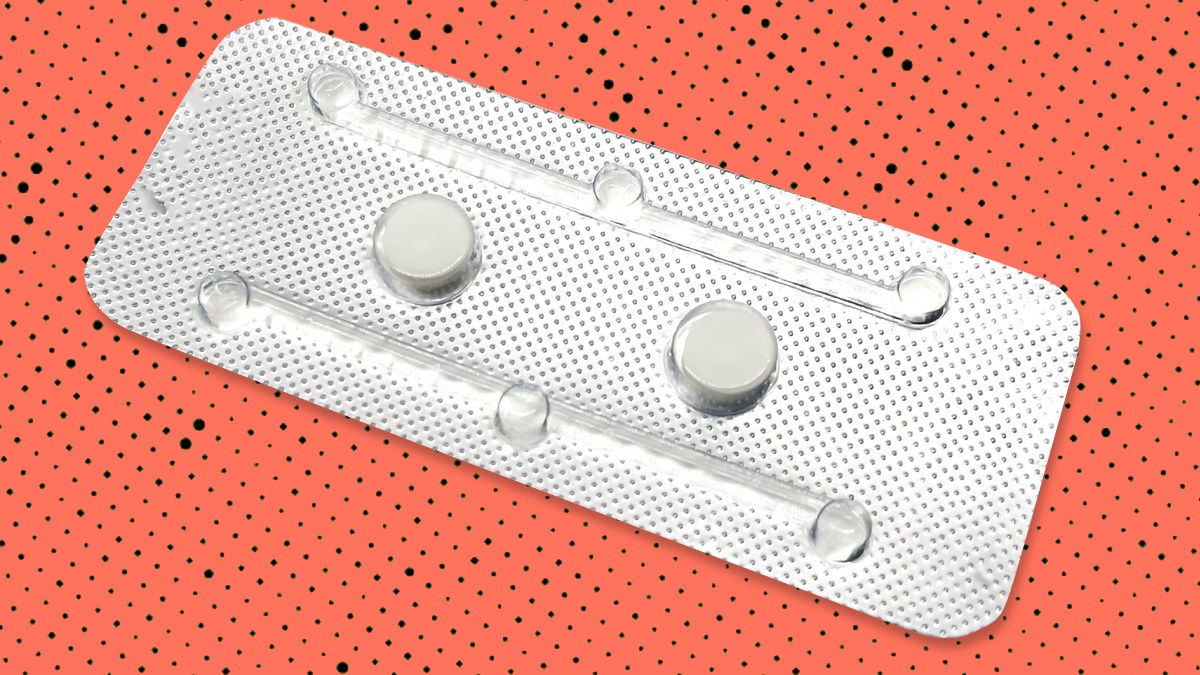What ‘Shrill’ Gets Right—and Wrong—About the Morning-After Pill Weight Limit

Shrill, a new show starring Aidy Bryant and cowritten by Bryant and author Lindy West, drops a casual bomb in its first episode, which premieres on Hulu today: There’s a morning-after pill weight limit.
Annie, the main character based on West in her hilarious memoir, realizes her period is late after an unprotected hookup with her shady nonboyfriend. Standing at the pharmacy counter, positive pregnancy test in hand, she asks how on earth she could be pregnant after taking the morning-after pill. “Do you weigh over 175 pounds?” the pharmacist asks coolly. “The morning-after pill is only dosed for women 175 pounds and under.”
The idea that the morning-after pill might not be effective for heavier women isn’t fiction. There are no warnings about efficacy and weight on the package of the emergency contraception Plan B, even though evidence suggests that the morning-after pill might be less effective for heavier women. “Women who are heavier are going to have a higher failure rate [with emergency contraception] than women who are of normal weight,” says Lauren Streicher, M.D., a clinical professor of obstetrics and gynecology at the Feinberg School of Medicine in Chicago. “Basically women who are obese have between a two- and fourfold higher risk of pregnancy than a woman of normal weight.”
Several studies back this up. A 2016 review of research on emergency contraception (EC) using levonorgestrel (like Plan B) and ulipristal acetate (like Ella) to prevent pregnancy found evidence that women over 175 pounds do indeed have a higher chance of getting pregnant after taking the morning-after pill—about 6 percent, which is about the same odds of getting pregnant without using any contraception.
Cue the collective What?! Why are women not warned about the morning-after pill weight limit?
The short answer is that there’s not quite enough data to warrant an FDA warning label detailing that the birth control method might not actually be an effective safety net for heavier women. Since pregnancies after taking EC are still rare, the data set is small and there are still woefully few studies on the effectiveness of birth control in larger-bodied women. In 2016 the Food and Drug Administration reviewed the available research and ruled the data was still “too limited to make a definitive conclusion.”
The higher risk of getting pregnant doesn’t mean larger-bodied women should forgo taking EC. “It doesn’t mean it’s ineffective—that would be completely the wrong word to use,” Dr. Streicher says. Officials in the EU actually did add a warning to the box of the European version of Plan B back in 2013, stating it became less effective for women weighing 165 pounds and totally ineffective for women weighing over 175, but the following year they reversed that decision, concluding that women of all weights should continue to take EC, since the “benefits are considered to outweigh the risks.”
“I tell patients anytime they use emergency contraception, there’s always a possibility of failure,” Dr. Streicher says, “and that if they’re overweight, that possibility of failure is more common. It doesn’t mean it’s ineffective—it means it’s less effective.”
The morning-after pill is never a 100 percent guarantee—everything from how soon you take it, to where you are in your cycle, to yes, weight, can impact how effective it is at preventing pregnancy. But if you’ve had unprotected sex, it’s still better than nothing, Dr. Streicher says.
That’s not exactly the most comforting thought. But heavier women do have another, more effective option: a copper IUD. The nonhormonal IUD works by creating a sperm-killing inflammatory response in your uterus, which starts working immediately (and can be inserted up to five days after unprotected sex). For most women a trip to the gyno for an IUD insertion is less preferable to popping a pill, but if you’re really worried about getting pregnant, it’s “the most effective method of emergency contraception,” for women at any weight, Dr. Streicher says. And you can of course leave it in for long-term birth control.
The important thing is that women are educated about the effectiveness of the morning-after pill—before they end up brandishing a positive pregnancy test at the pharmacist.



